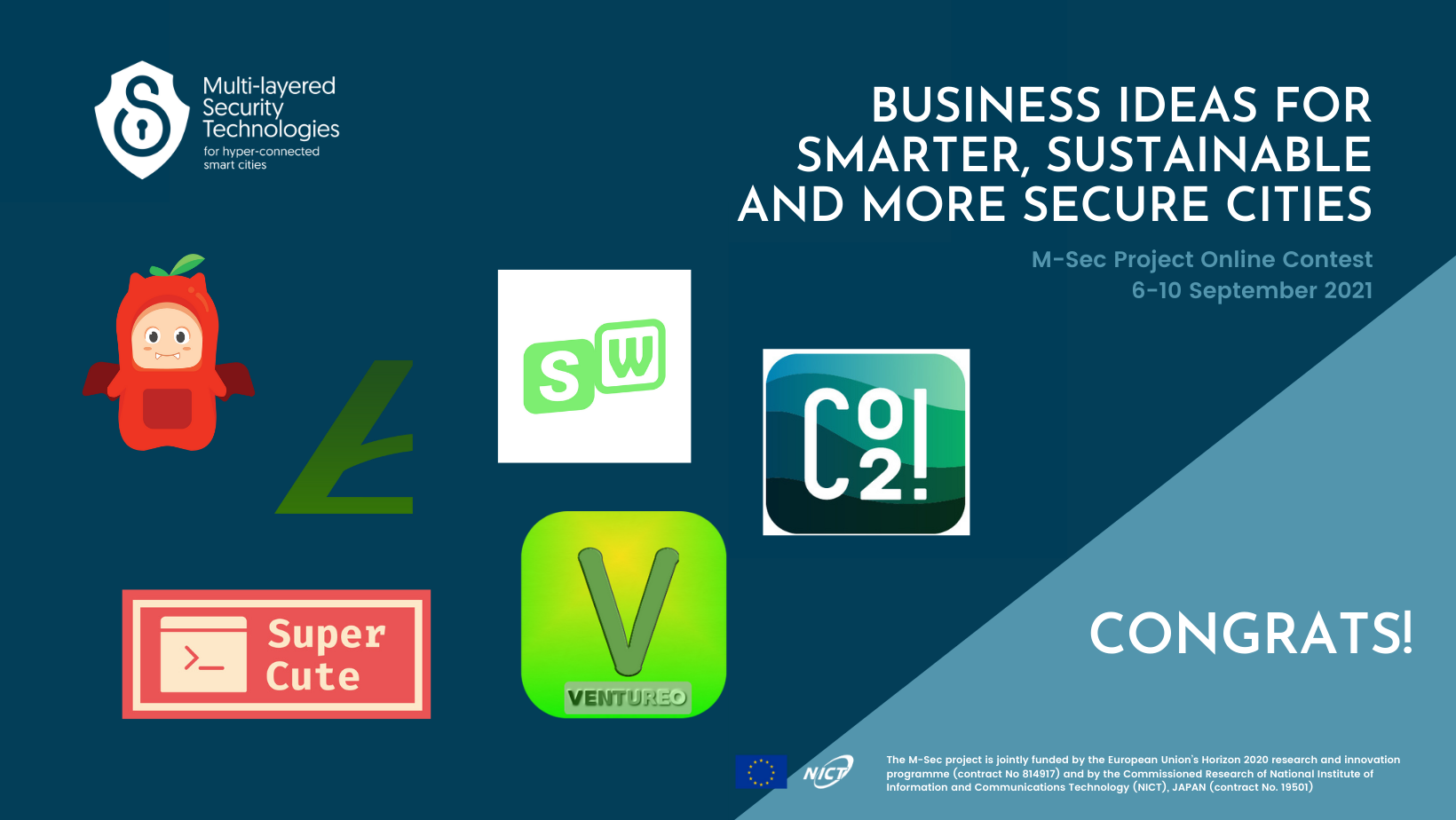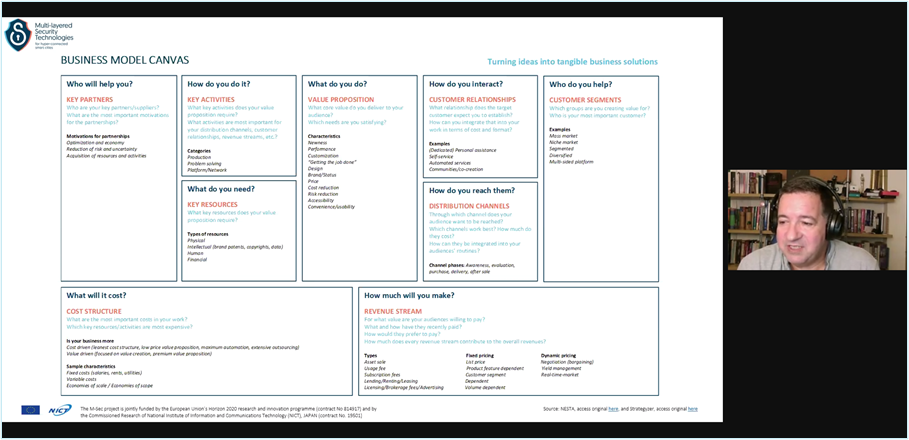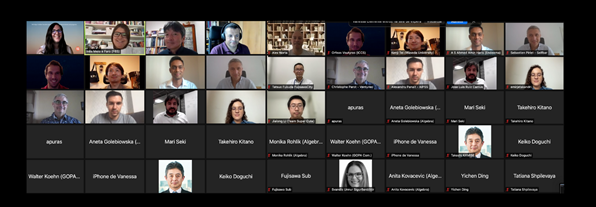With the organization of the Online Contest, the M-Sec Project was able to engage 13 teams and more than 30 participants from the industrial and academic sectors towards the adoption and/or development of the project findings, with the creation of new business ideas that, at the same time, addressed the smart city challenges of Santander and Fujisawa cities and took into consideration the potential integration of the M-Sec framework in their solutions as a security and privacy component.
The Online Contest took place between 6 and 10 September 2021. It was a completely free event in which teams received support from the M-Sec consortium in the design and development of their new and early-stage business ideas, helping them better prepare to present it to a panel of international experts on 10 September, at a public online event, who decided on the top 3 winners of each city challenge. Overall, 9 teams made it until the end and pitched their business ideas.
With the organization of such a community event, the project was able to raise awareness for the smart city challenges and for the effectiveness of the security and privacy features of the M-Sec framework, namely by engaging a large community of innovators (including startups and developers) interested in developing news solutions and products and in need of security modules (i.e., software, hardware, data), and increase the acceptance of the new applications developed, and potential adoption by the cities.
Key moments
The Online Contest was divided in 4 main moments:
- On 6 September, the first day of the challenge, there was a kick-off session with the participating teams and challenges representatives. The main goal of this session was to kick-off the Contest, with a short presentation of M-Sec and of the Contest and welcoming teams, and so that challengers, i.e., representatives from the smart cities of Santander and Fujisawa could present their city, needs and problems and go deeper on the challenge presented in the scope of the Contest. This was followed by a period of questions and answers from attending teams, to further support the development of their business idea.
Figure 1: Screenshot of M-Sec’s kick-off on 6 September
- After the kick-off until the selection event, teams could organize themselves as they pleased. The M-Sec consortium made available structured contact points, known as M-Sec mentors, and a specific mentor was assigned to each team. After being put in direct contact with their assigned mentor, each team had the chance to have 2 online meetings of up to 2 hours with their assigned mentor. Overall, M-Sec mentors were expected to support the teams with their PowerPoint presentation, to better present the business idea and tackle all evaluation criteria, with the drafting of their Business Model Canvas, that would help them refine the idea, and to go through the M-Sec White Paper and Cookbook to understand how they could include the M-Sec framework in a future hardware/software solution of the business idea. Most meetings were scheduled between 8 and 9 September.
- On 7 September, the second day of the challenge, there was an optional workshop provided by F6S on the technical and business basics for participants, to provide and extra support to the development and presentation of the business idea. Among other topics, the workshop tackled the business model canvas and the value proposition canvas to help participants ensure that their product or service is positioned around what the customer values and needs.
Figure 2: Screenshot of M-Sec’s workshop on 7 September
- Finally, on 10 September, the last day of the challenge, was the public pitch presentation session to select the top 3 winners per city challenge. Each team had the chance to present its business idea before a panel of international experts and general participants, as this was a public event, through a pitch presentation of +/- 5 minutes, with +/- 2 minutes for questions from the jury members. This pitch event was held online. Overall, this event joined together 42 participants, including jury members from the M-Sec consortium, representatives from the cities of Santander and Fujisawa and external stakeholders relevant in the areas of smart cities, security, and privacy issues. After the pitch presentation, the jury members were asked to join a consensus meeting to decide the winners of each challenge and at 12h50pm CET/Brussels Time these were announced in the pitch event, which ended the session.
Figure 3: Screenshot of M-Sec’s final pitch presentation on 10 September
Recap the M-Sec Online Contest final public pitch presentation and listen to the feedback from our cities and teams:
The winners
Congratulations to our M-Sec Online Contest top 3 winners of the Santander city challenge – Ruddy, Endeema and Super Cute – and to our top 3 winners of the Fujisawa city challenge – Co2mmon, Ventureo and City Smart Waste. You can find more information about our winning teams at the M-Sec Online Contest official webpage.
What’s next?
The top 3 per city challenge will have the chance to receive further mentoring to refine their business idea with their assigned M-Sec mentor, be highlighted in M-Sec’s communication channels and prepare to meet city council representatives of that given challenge to present their idea.






